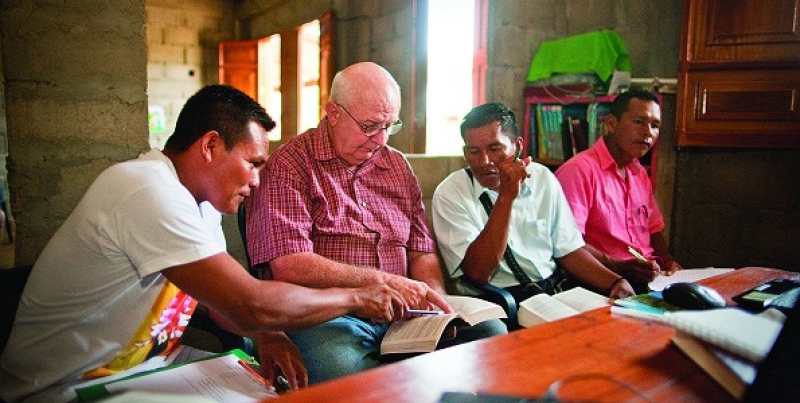Guess what’s not in the Bible?

A few years ago, as we prepared to do a magazine issue about NTM missionaries translating the Bible, I searched for verses we could use. And searched. And searched.
The New Testament says a lot about sharing the gospel, teaching and discipling. It talks about prayer, giving and encouraging. It speaks of sending and serving.
Not once are we told to translate the Bible.
Does this mean we’re not supposed to translate the Bible? Certainly not.
In Jesus’ time, Greek was a common language, and the Old Testament had been translated from Hebrew into Greek. While it’s likely that Jesus read the Scriptures in the original Hebrew, some of the Scripture quotations in the New Testament come from the Greek translation. So the men who wrote the Gospels, inspired by God, had no problem with translation.
More importantly, Bible translation fits God’s character. His nature, demonstrated repeatedly in Scripture, is to communicate clearly. So just as it made sense then to translate the Old Testament into the marketplace Greek commonly spoken in Jesus’ day, it makes sense today to translate His Word into people’s heart language.
So why is translation never spoken about?
I think the answer is clear in what the Bible does speak about.
We were given a task: Make disciples of all nations. That’s the way Matthew 28:19 puts it, but similar commands are in each of the Gospels and in Acts. And that concept — that we’re supposed to be disciples of Christ and make disciples — is a central theme of the New Testament.
When we’re talking about a people group that has few or no believers, Bible translation is an important step in the process of making disciples. But is it more important than others? It’s probably more correct to say each step locks together with the others.
- In order to teach or translate, it’s critical to understand a people group’s worldview and language.
- Since discipleship begins with faith, a clear presentation of the gospel is necessary.
- Teaching people to read and write, and establishing a means to continue the teaching, is also necessary — or what use is the Bible translation?
In other words, Bible translation is one of the important parts of the big-picture, long-term task God has given us of making disciples.
Certainly, God’s Word alone can change the course of someone’s life. But usually, God’s disciples and God’s Word work in concert to change lives. Isn’t that why Acts 8 tells us about Philip and the eunuch? The eunuch is reading the Scriptures, but does not understand them. The Holy Spirit brings Philip to explain them to him.
And consider this: A 2012 survey by the Barna Group for the American Bible Society revealed that 85 percent of US households have at least one Bible, and the average number of Bibles in each household is 4.3. That’s a lot of Bibles. If simply having a Bible translation available is enough, then Americans — who have more than 900 translations and paraphrases available — should be doing great.
If we take God’s Word seriously, our focus will be on making disciples. And if that’s our goal, we’ll strive to provide believers with a clear translation that communicates God’s heart.
